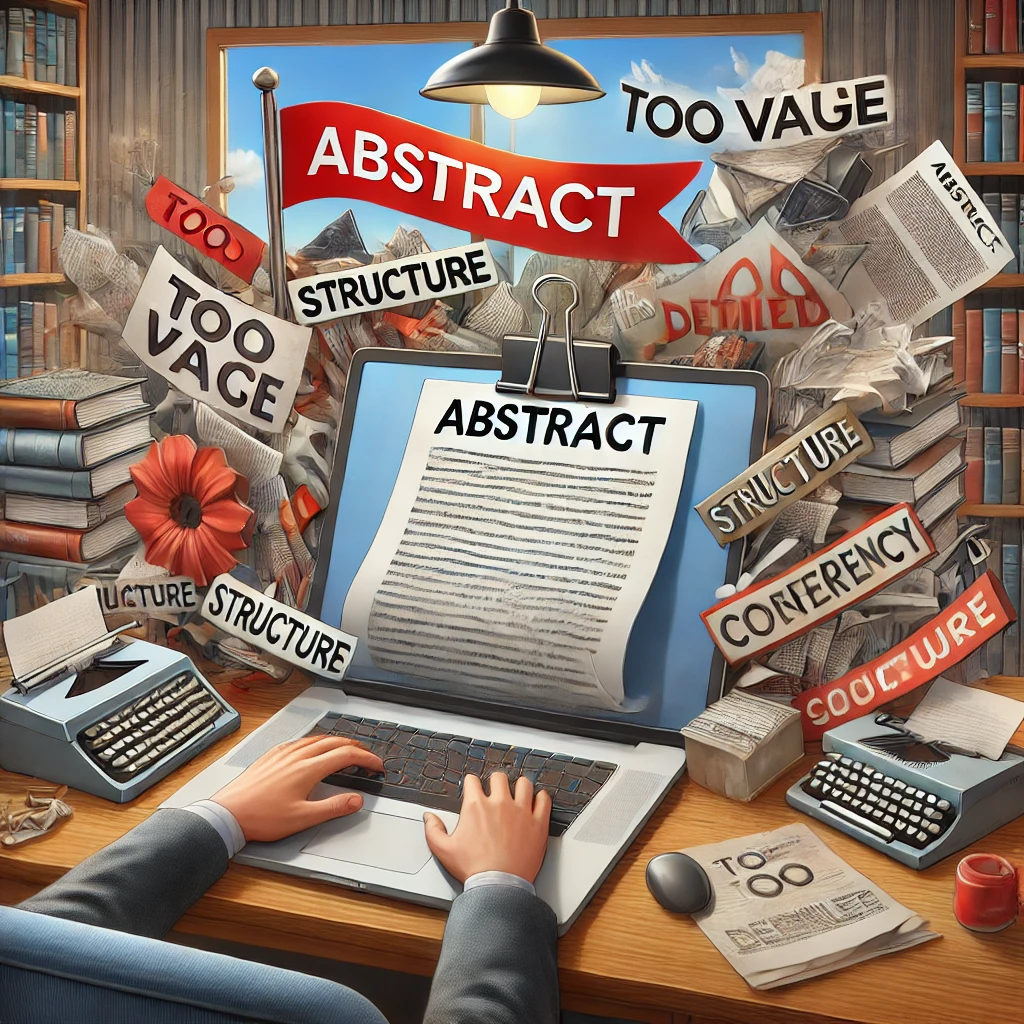Introduction
Abstract Writing: Effective abstract writing is crucial for academic success, yet many students and researchers struggle with it. This article explores the common mistakes in abstracts and provides actionable tips to help avoid them. Additionally, MyWordAi.com, an automated academic writer powered by ChatGPT, can assist researchers in streamlining their writing process without needing advanced AI skills.

What Is an Abstract and Why Does It Matter?
An abstract is a concise summary of a research paper or article, highlighting its purpose, methods, results, and conclusions. It serves as the first impression for readers, offering a glimpse into the full content. A well-written abstract increases the chances of publication acceptance and helps readers determine whether to engage with the research.
Common Errors in Abstract Writing
Being Too Vague or Too Detailed
Many abstracts either oversimplify the research or include unnecessary details. A vague abstract leaves readers unsure about the core message, while excessive information overwhelms them. Striking the right balance is essential for clarity and engagement.
Ignoring the Word Count Limit
Every academic publication imposes word limits on abstracts. Going over the limit can lead to rejection, while underusing the allowed space may result in an incomplete abstract. Aim for 150-300 words for journal articles and 50-100 words for conference papers.
Lack of Structure and Coherence
A well-structured abstract follows a logical flow, presenting the research in a clear and coherent way. Without a proper structure, the abstract may confuse readers, reducing the impact of the research.
Inconsistent Language and Jargon Overuse
Using too much jargon alienates readers unfamiliar with specific terms. It’s important to use simple, clear language and maintain consistency in tone throughout the abstract.
Tips to Avoid Abstract Writing Mistakes
Understand the Requirements
Different publications have specific requirements for abstracts. Ensure you tailor your abstract according to the target publication, including word limits and formatting guidelines.
Focus on Key Components
A high-quality abstract addresses these essential elements:
- Purpose: Why the research was conducted
- Methodology: How the research was conducted
- Results: Key findings
- Conclusion: Implications or recommendations
Use Tools Like MyWordAi.com for Precision
MyWordAi.com is a powerful tool designed to help researchers avoid common abstract writing mistakes. Powered by ChatGPT, it generates drafts based on user input and provides real-time editing suggestions.
How to Write an Abstract with MyWordAi.com
Step-by-Step Guide for Using MyWordAi.com
- Visit MyWordAi.com or Download the App: You can access MyWordAi through its website or download it from the Play Store.
- Sign In or Log In: Create an account or log into your existing account.
- Click on Complete Research Writer: Navigate to the writing tools.
- Choose Research Abstract: Select the option for generating a research abstract.
- Input Your Research Topic & Questions: Enter the title of your research and specific questions that guide your study.
- Click the Generate Button: MyWordAi will create a draft of your abstract based on the information provided.
- Review the generated draft, which will include all key components like purpose, methods, and conclusions.
- Refine the abstract using the editing suggestions provided by MyWordAi to enhance clarity and coherence.
Abstract Writing: Example of Abstract Created by Using MyWordAi.com
Topic: The Impact of AI on Academic Writing Practices
- Purpose: To analyse the growing influence of AI-based tools like MyWordAi on research quality
- Methods: Survey conducted with 100 students and researchers using AI writing tools
- Results: 85% reported improved writing efficiency; 65% highlighted reduced stress
- Conclusion: AI-powered tools are revolutionizing the way researchers approach academic writing
Conclusion:
Avoiding common pitfalls in abstract writing requires attention to detail, structure, and consistency. By focusing on the essential elements and avoiding vague or overly complex language, researchers can create compelling abstracts that captivate readers.
However, writing abstracts doesn’t have to be a daunting task. Tools like MyWordAi.com provide a seamless way to generate, edit, and refine abstracts, saving time and reducing stress. Whether you’re a student or a seasoned researcher, MyWordAi can simplify your academic journey.
Download the MyWordAi app today and experience automated academic writing powered by ChatGPT!